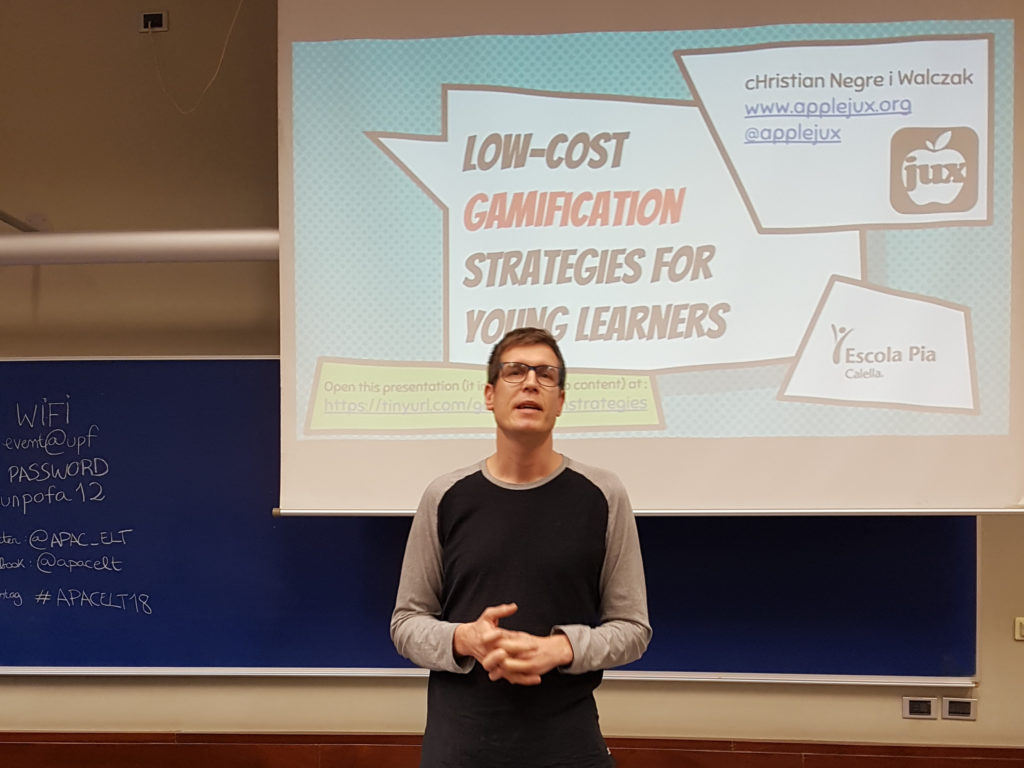Podcast: Play in new window | Download
Subscribe: Apple Podcasts | Android | More

Gamification in education is not only about transforming learning into a game but about improving the teacher-student relationship. Learning a language doesn’t usually provide immediate feedback; results only appear after strong efforts, which can generate frustration. In contrast to this, our learners are spending an increasing amount of hours playing on digital devices and don’t seem to struggle much. What can we take from games to improve their learning experience at schools? This active presentation will introduce the power of play as an emotional motivator in education. It will also provide different, easy-to-apply, low-cost gamification strategies. These are real examples that have been developed over several years at Escola Pia in Calella, mostly with kids aged 9 to 12. And yes, just in case you were wondering, you’ll be invited to play, too!
I had this talk in mind since last year’s APAC ELT Convention. Unfortunately, I wasn’t able to make it then, so I applied again this year. I had a good experience from the talk I gave in the 2014 edition. I must admit, I knew hardly anything from the Convention then, but the huge number of participants and talks amazed me.
The APAC’s (“Associació de Professors d’Anglès de Catalunya”) new board members have changed their website (which actually needed to do asap!) and have organized another shocking and inspiring convention. I wasn’t able to see much this edition, but I have been tracking some trustful contacts and resources online. I was specially happy to attend to Ellie Abad’s successful talk: “How to take the youtuber phenomenon into the EFL Classroom”. I met her in the first edition of a #gamification summer course known as #gamificurs. In addition, I would like to state another brief issue… I have been following Usoa Sol since then. Her amount of projects impressed me. I don’t think she was in the organitzation then, but she is the vice-president now, so I glad to discover that my intuition wasn’t wrong then. She may the effort to come as say hello, very kind!
I’m attaching the presentation used and the speech mp3 recording of the session. Credits go to Ross Flatt from the Institute of Play from whom I saw for the first time the “Rock, paper, scissors” competition experience that I often use and to Natxo Maté, another real magic teacher, who gave me the secret for the magic trick. I also have some nice pics from the talk from Gina Aguirre and Irene Escudero.